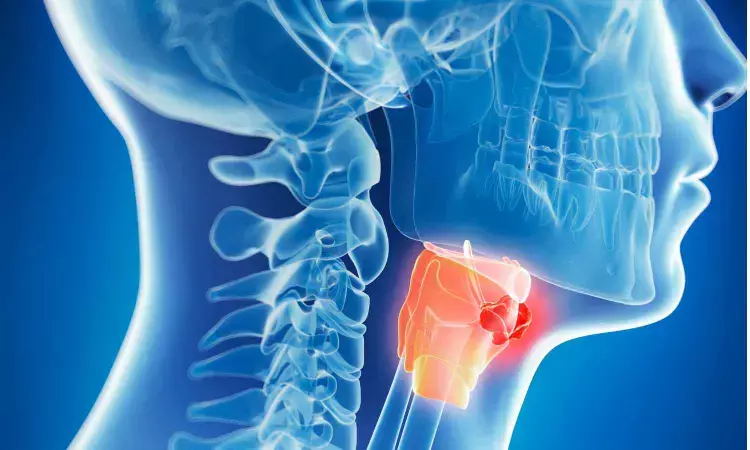- Home
- Medical news & Guidelines
- Anesthesiology
- Cardiology and CTVS
- Critical Care
- Dentistry
- Dermatology
- Diabetes and Endocrinology
- ENT
- Gastroenterology
- Medicine
- Nephrology
- Neurology
- Obstretics-Gynaecology
- Oncology
- Ophthalmology
- Orthopaedics
- Pediatrics-Neonatology
- Psychiatry
- Pulmonology
- Radiology
- Surgery
- Urology
- Laboratory Medicine
- Diet
- Nursing
- Paramedical
- Physiotherapy
- Health news
- Fact Check
- Bone Health Fact Check
- Brain Health Fact Check
- Cancer Related Fact Check
- Child Care Fact Check
- Dental and oral health fact check
- Diabetes and metabolic health fact check
- Diet and Nutrition Fact Check
- Eye and ENT Care Fact Check
- Fitness fact check
- Gut health fact check
- Heart health fact check
- Kidney health fact check
- Medical education fact check
- Men's health fact check
- Respiratory fact check
- Skin and hair care fact check
- Vaccine and Immunization fact check
- Women's health fact check
- AYUSH
- State News
- Andaman and Nicobar Islands
- Andhra Pradesh
- Arunachal Pradesh
- Assam
- Bihar
- Chandigarh
- Chattisgarh
- Dadra and Nagar Haveli
- Daman and Diu
- Delhi
- Goa
- Gujarat
- Haryana
- Himachal Pradesh
- Jammu & Kashmir
- Jharkhand
- Karnataka
- Kerala
- Ladakh
- Lakshadweep
- Madhya Pradesh
- Maharashtra
- Manipur
- Meghalaya
- Mizoram
- Nagaland
- Odisha
- Puducherry
- Punjab
- Rajasthan
- Sikkim
- Tamil Nadu
- Telangana
- Tripura
- Uttar Pradesh
- Uttrakhand
- West Bengal
- Medical Education
- Industry
Radiation reduction After Surgery Prolongs Survival for Some Patients With HPV-Related Throat Cancer, suggests study

Patients being treated for HPV-related oropharynx cancer might need less radiation therapy typically given post-surgery, according to a new study. Less than the standard doses of post-operative radiation therapy is safe and effective and reduces side effects, researchers say, resulting in very high survival rates-Radiationmarking a significant advancement in head and neck cancer care.
The results follow an E3311 trial of the ECOG-ACRIN Cancer Research Group, a membership-based scientific organization that tested the feasibility of transoral surgery that was followed by fewer weeks of radiation than are standard of care. For example, patients classified at surgery as having intermediate risk cancers, had five weeks of post-operative radiation instead of six. Each patient in the multi-institutional trial was classified at surgery as having low, intermediate or high-risk disease. For each group, post-operative treatment was scaled back.
“Long-term follow up now demonstrates remarkable progression-free and overall survivals of 90.6% and 95.3% for the overall group,” said the study’s first author, Barbara Burtness, MD, chief of head and neck cancers/sarcoma and chief translational research officer at Yale Cancer Center. “Survival at 54 months was greater than 97% for favorable and intermediate risk groups, there was no disadvantage from treatment deintensification, and no increased risk for smokers or those with base of tongue cancers. These findings support the use of transoral surgery and reduced intensity of post-operative management.”
The findings from the 359 patients were consistent across all disease subsites and regardless of the patient's smoking history. However, having a history of smoking can result in higher recurrence rates when patients are treated with chemotherapy and radiation instead of surgery.
Dr Kamal Kant Kohli-MBBS, DTCD- a chest specialist with more than 30 years of practice and a flair for writing clinical articles, Dr Kamal Kant Kohli joined Medical Dialogues as a Chief Editor of Medical News. Besides writing articles, as an editor, he proofreads and verifies all the medical content published on Medical Dialogues including those coming from journals, studies,medical conferences,guidelines etc. Email: drkohli@medicaldialogues.in. Contact no. 011-43720751


